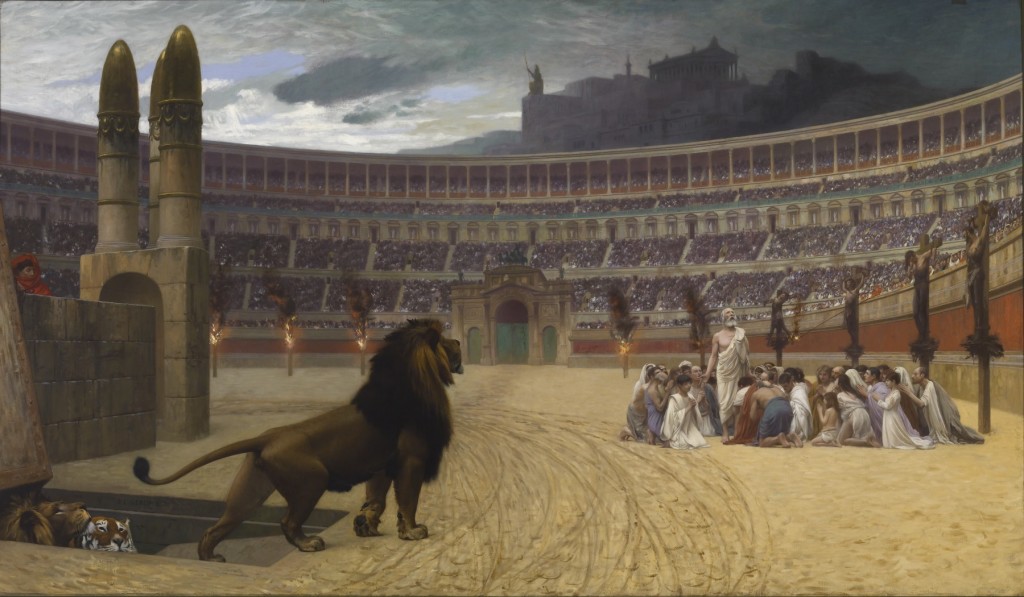In Karl Barth's criticism of Capital Punishment, he provides a very good summary of the three best arguments for Capital Punishment, because he continues on to criticize and deconstruct each of them.
1) According to the first theory, which is not only the oldest and most primitive but also the most obvious and impressive, the purpose of punishment is to protect society and the individuals united in it against the criminal and possible imitators of his action by effectively removing the former in some gentler or more drastic fashion, by thus preventing him from further wrongdoing, and at the same time by setting a dreadful example before the latter in order to teach them that such acts are not worth while.
2) According to the second and more profound theory, punishment is meted out because the committed violation of the law objectively demands a retribution or expiation which must fall on the criminal himself, and this in such a way that he himself is more or less severely restricted in the enjoyment of his rights according to the measure in which he has offended against the rights of others or of society. Punishment is, as it were, a representation and proclamation in human and earthly terms of the retributive justice of God.
3) According to the third theory, originated and first held in modern Europe and America, the criminal is punished in order to bring him to an acknowledgement of his error, and to incite him to future amendment, by drastically confronting him with the nature of what he has done in the form of what is now done to him. Punishment thus has a moral, pedagogic and even pastoral purpose.
- Karl Barth, Church Dogmatics III.4, Section 55.2, pg440
[http://books.google.com/books?id=kdvwyA4nVtkC&lpg=PP1&pg=PA112#v=onepage&q&f=false]
Here is a brief quotation from Barth's response against these arguments:
If the command to protect life is accepted and asserted in some sense in a national community, then it is impossible to maintain capital punishment as an element in its normal and continuing order. It is astonishing and disturbing fact that for nineteen hundred years there has been a Christian Church, and for four hundred a Protestant, which has not only failed to champion this insight but has continually opposed it. And it is one of the disconcerting blessings of the divine overruling of history that nevertheless it has been very widely accepted, being adopted far more readily and energetically by the children of the world than by the children of the light. But the dreadful abuse of capital punishment which has become rampant again during the last decades in the very heart of Europe, and in a form far exceeding the atrocities of the 16th and 17th centuries, is a clear indication that even the children of the world have not renounced this weapon quite so completely as might have appeared at the height of the 19th century. It is not too late, therefore, for the Christian Church to espouse this renunciation on a worldwide scale. It had every reason to do so from the very first on the basis of its central message, and if it is really true that Liberal opposition to the death sentence was too superficial to be finally adequate and effective, there is no reason why the Church should continue to hide its light under a bushel in this respect. For from the point of view of the Gospel there is nothing to be said for its institution, and everything against it.
- Karl Barth, Church Dogmatics III.4, Section 55.2, pg445-6
[http://books.google.com/books?id=kdvwyA4nVtkC&lpg=PP1&pg=PA117#v=onepage&q&f=false]
This selection is from an extended ethical section in CD III.4, where he also addresses abortion, suicide, and just war.




December 7th, 2016 - 07:42
Barth is so good, it leaves me breathless …